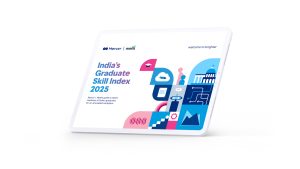Institutions are moving from passive to active learning models by integrating online simulations into remote education programs. Here’s how this shift is transforming the landscape:
Hands-on learning in a virtual setting
Simulation-based learning offers a ‘learn by doing’ experience. Whether it’s a management simulation or a technical troubleshooting task, learners actively solve problems rather than passively consume information. This interactivity leads to better understanding, higher retention, and stronger engagement.
Real-time feedback and actionable insights
Unlike traditional tests, online simulations can offer real-time feedback, helping learners identify what they did right or where they went wrong. Platforms like Mercer | Mettl provide deep analytics that break down learner behavior, decision-making patterns, and skill performance, giving instructors a clear picture of student readiness.
This level of insight helps personalize the learning journey and improves outcomes over time.
Boosting engagement and motivation
One of the biggest challenges in remote learning is student motivation. Long videos, static PDFs, and rigid assessments can quickly lead to disengagement.
Simulations, however, offer a dynamic environment where learners make decisions, interact with the content, and see consequences unfold just like in real life. This type of active participation keeps learners more involved and invested in the process.
Impartial, objective, and scalable assessments
Because online simulation tools rely on measurable actions and outcomes, they make overall assessments more objective. There’s less room for subjectivity or inconsistency in grading. In large-scale distance learning assessments, this ensures fairness and standardization.
Tools offered by Mercer | Mettl, for example, provide customizable assessments that can scale to thousands of learners while maintaining academic integrity through advanced proctoring, secure browsers, and candidate authentication.
Job readiness at the core
Employers today are looking for job-ready candidates who can apply their skills from day one. Simulations align learning outcomes with job expectations. By simulating workplace scenarios, learners develop and demonstrate the competencies they’ll need on the job.
This also benefits academic institutions and training providers. They can confidently say their programs prepare students for real-world challenges, not just exams.
Where simulations work best









 Behavioral Competencies
Behavioral Competencies Cognitive Competencies
Cognitive Competencies Coding Competencies
Coding Competencies Domain Competencies
Domain Competencies



















Would you like to comment?